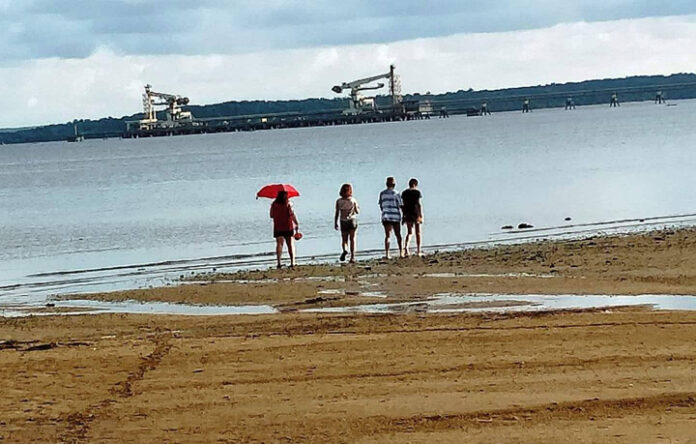
THE Asian Development Bank (ADB) said that while cancelling debts in light of the pandemic would not be possible as it would undermine its credit ratings, the Manila-based multilateral development bank assured critics its days of financing coal projects are now behind it.
In a statement, the Asian Peoples’ Movement on Debt and Development (APMDD) called on the ADB to cancel debts of developing member-countries (DMCs), especially in light of the pandemic and as an effort to end its support for fossil fuel infrastructure.
In an e-mail to the BusinessMirror, ADB’s Energy Sector Group Chief Yongping Zhai said the last time the bank financed a coal power project was in 2013 and it no longer had any similar projects in the lending pipeline. These are some of the changes that will be forthcoming in the bank’s new energy policy.
“The new energy policy will reflect the changing energy sector landscape and global climate commitments. It will prioritize support for the low-carbon transition in Asia and the early phaseout of coal power plants in Asia and Pacific region,” Zhai said in an e-mail to this newspaper.
“The new energy policy, which is expected to be submitted to the Board of Directors for approval by the fourth quarter of 2021, will define our position on fossil fuels to support implementation of our developing member-countries’ Nationally Determined Contributions under the Paris Agreement,” he added.
APMDD said in 2019, 16 of ADB’s” low to lower-middle income” developing member-countries paid more than $6.4 billion in debt service payments on public sector debts to ADB. Cancelling these debts could have freed up public money for peoples’ survival, APMDD said.
Zhai said the ADB and other Multilateral Development Banks (MDBs) welcomed the decision of the Group of 20 (G20) to extend debt service suspension for pandemic-hit low-income countries.
He added that the G20’s debt service suspension initiative (DSSI) until the end of this year these countries will still require additional funding for vaccine procurement and economic recovery.
“For ADB, offering any form of debt relief to any of its borrowing member-countries will compromise its preferred creditor status, which underpins ADB’s strong credit ratings,” Zhai said.
“Our strong credit rating is critical for ADB to offer low-cost funding to all borrowing member countries, in support of their development efforts,” he added.
Meanwhile, Zhai responded to the issues raised by civil-society organizations (CSOs) and said ADB spent a total of $4.7 billion to finance various gas projects.
CSOs had tagged gas expansion among the greatest threats to meeting the Paris Agreement goals and averting the worst impacts of the climate crisis.
Zhai said the gas projects supported by ADB consist mainly of projects providing energy access for clean cooking and heating; and aim to replace coal power with more efficient and low- emission combined-cycle gas-fired power.
He said ADB invested $25 billion in the energy sector between 2015 and 2020. Around 45 percent of the amount was invested in renewable energy and energy efficiency.
Another 35 percent was for projects in transmission and distribution lines to integrate more renewable energy into the region’s energy systems.
Zhai said ADB committed to help developing members access clean and reliable energy for all. Between 2009 and 2019, ADB’s clean energy financing reached $23 billion and its target is to reach $80 billion in cumulative climate financing for 2019-2030.
“When evaluating natural gas projects, ADB makes sure such projects are consistent with a country’s long-term strategic climate and energy transition plans,” Zhai said.
“Tackling climate change, building climate and disaster resilience, and enhancing environmental sustainability, is an operational priority for ADB under its Strategy 2030,” he added.
In a statement, APMDD said for more than 50 years, the ADB has funded projects that led to the displacement of communities and brought harm to health, livelihoods and environment.
It asked ADB to stop funding all fossil fuel projects, noting a growing momentum in the European Union, UK and US to end public financing for fossil fuel infrastructure at home and abroad.
Despite ADB’s pledge to address climate change, fossil fuel generation projects from 2009 to 2018 comprised 50 percent of the total installed capacity of all ADB-funded energy generation projects. More than $8.9 billion went to fossil gas and $2.6 billion to coal.
Read full article on BusinessMirror

